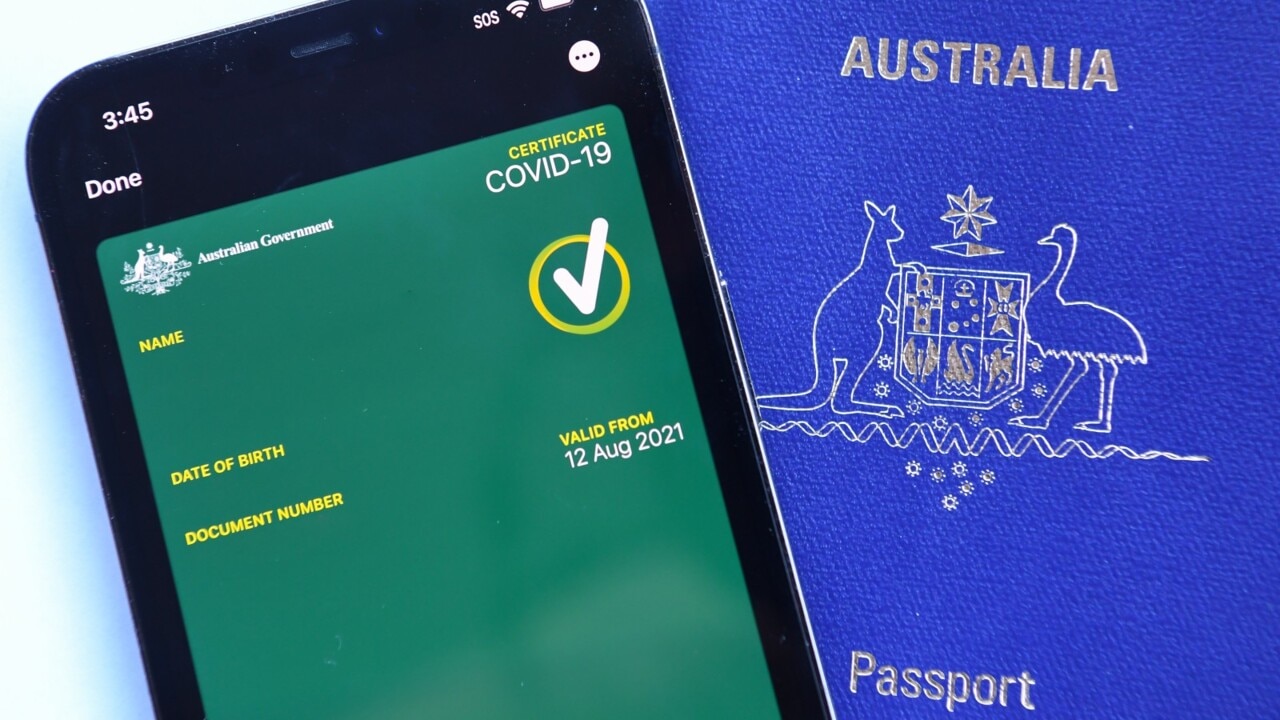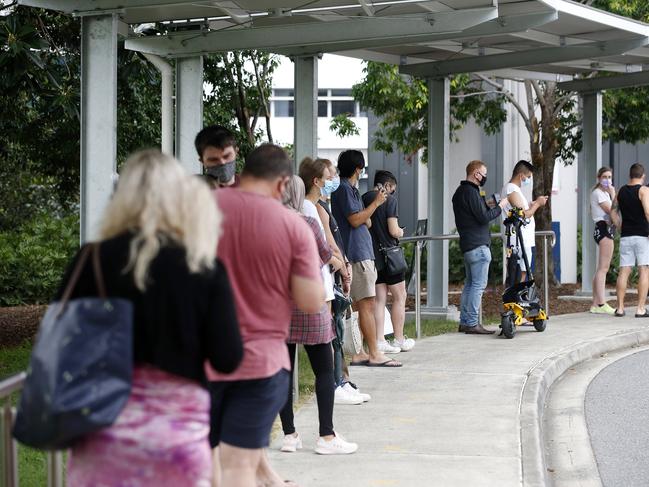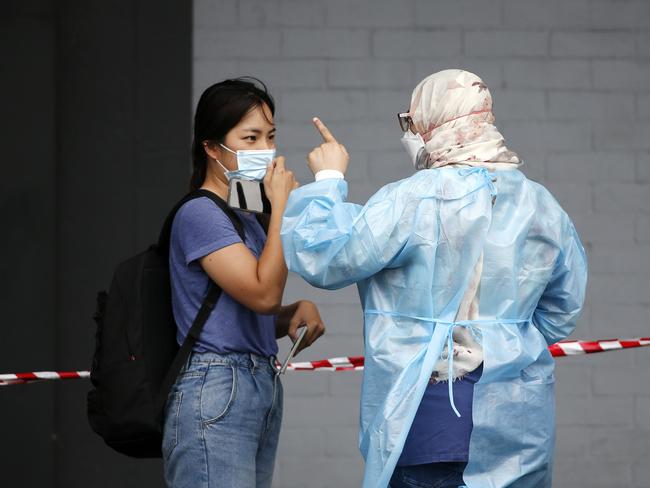Studies reveal promising data on Covid-19 reinfection rates, hospitalisation and death
As the Omicron wave spreads like wildfire, Australians have been warned to prepare to catch the virus. But what happens after you recover?

World
Don't miss out on the headlines from World. Followed categories will be added to My News.
After two years of managing outbreaks in Australia via state-imposed restrictions, the seemingly irrepressible coronavirus wave is finally here.
Leading epidemiologist Tony Blakely has estimated current daily case numbers could be as much as five times higher than official numbers, as the nation transitions to home testing via rapid antigen kits.
Experts like Prof Blakely have remained positive the virus is nearing its peak as it “runs out of people to infect” due to natural immunity built by previously having the virus.
He estimated NSW’s numbers (a record 39,625 infections on Friday, according to NSW Health), could actually be as high as 200,000 per day, with a large portion of cases likely never realising they are positive.
While the WHO has warned against labelling the current strain “mild”, hospitalisation and death statistics have remained positive compared to the previous Delta outbreak.
But just how likely are you to get the virus a second time? As always, the data is complicated, and changes with each new variant.

Leading US cardiologist Dr Peter McCullough, who has treated thousands of Covid patients over the pandemic, is among those who remain adamant patients’ natural immunity prevents them from ever catching the disease a second time.
A laboratory-based study that analysed the test results of 9119 people with previous Covid-19 infections from Dec 1, 2019, to Nov 13, 2020, found that only 0.7 per cent became reinfected, according to medical publication The Lancet, which is regarded as a gold-standard source for the latest information on the pandemic.
However, the landscape has changed dramatically with the emergence of the Omicron variant in November 2021, which has proven to be far more resistent to current coronavirus vaccines, despite its overall severity appearing to be lower than previous variants.
Multiple epidemiological and clinical studies, including studies during the recent period of predominantly Delta variant transmission, found that the risk of repeat infection “decreased by 80.5-100 per cent among those who had had Covid-19 previously”.
The reported studies were widespread and conducted throughout the world.
A US study conducted at the Cleveland Clinic found those who had not previously been infected had a Covid-19 incidence rate of 4.3 per 100 people. Those who had previously been infected had an incidence rate of 0 per 100 people.
The data concerning hospitalisations was also positive for rare cases of second infection.
An additional study conducted in Austria found that the frequency of hospitalisation due to a repeat infection was five per 14,840 people (0.03 per cent), with the frequency of death due to a repeated infection sitting at one per 14,840 people (0.01 per cent).

How long does natural immunity last?
The recent fracas over Novak Djokovic’s cancelled visa and his reported medical exemption has raised questions over just how strong natural immunity against coronavirus is after an extended period of time.
As the virus is still developing, no concrete consensus has been reached by global medical officials, however, early data have indicated “encouraging” signs.
Authors of a study conducted among recovered individuals who had experienced mild SARS-CoV-2 infection reported that their infection “induced a robust antigen-specific, long-lived humoral immune memory in humans”.
“Clinicians should remain optimistic regarding the protective effect of recovery from previous infection,” The Lancet’s analysis, compiled by Californian Department of Health representatives Noah Kojima and Jeffrey Klausner, claimed.
The article concluded that while the data on the longevity of natural immunity remains hazy, community immunity to control the pandemic “can be reached with the acquired immunity due to either previous infection or vaccination”.
“Acquired immunity from vaccination is certainly much safer and preferred,” the analysis continued.
“Given the evidence of immunity from previous SARS-CoV-2 infection, however, policy makers should consider recovery from previous SARS-CoV-2 infection equal to immunity from vaccination for purposes related to entry to public events, businesses, and the workplace, or travel requirements.”
In Switzerland, locals who can prove they have recovered from Covid in the previous year are officially considered to be as equally protected as fully-vaccinated residents.
However, other health experts have warned against relying on natural immunity alone, calling on the public to get vaccinated to increase protection against a potentially severe case of the disease.

“Don’t rely on natural immunity to protect you.” Dr. Lindsay Weaver, chief medical officer at the Indiana Department of Health, said via The Republic this week.
“Even if you had a mild case the first time, your symptoms could be more severe the second time if you are not vaccinated and boosted.”
However, further studies analysed by The Lancet also revealed some people who have previously recovered from Covid-19 “might not benefit from Covid-19 vaccination”.
“In fact, one study found that previous COVID-19 was associated with increased adverse events following vaccination with the Comirnaty BNT162b2 mRNA vaccine (Pfizer–BioNTech),” the article stated.
Originally published as Studies reveal promising data on Covid-19 reinfection rates, hospitalisation and death





